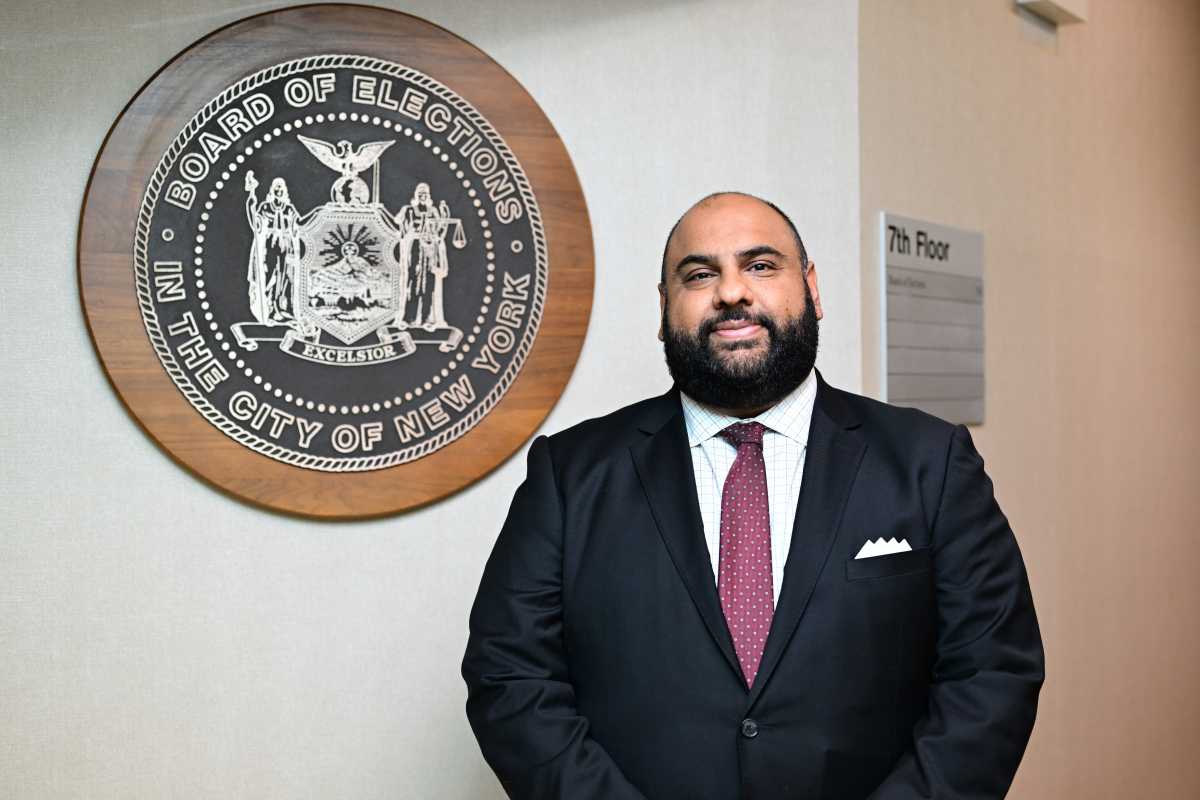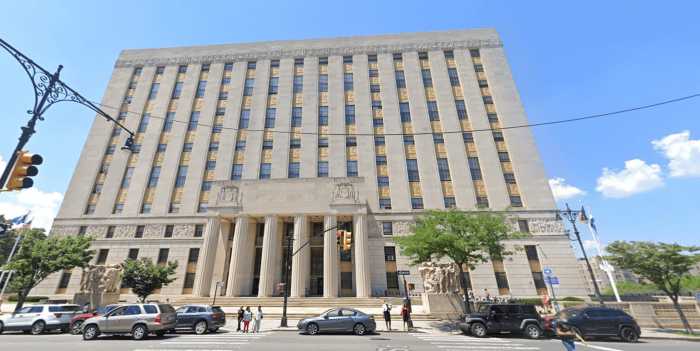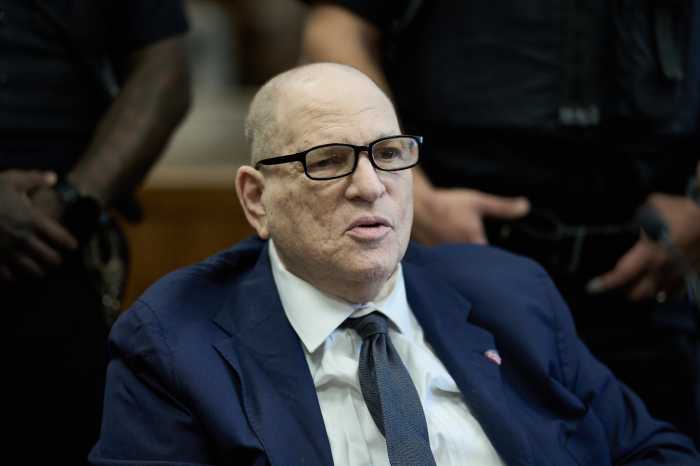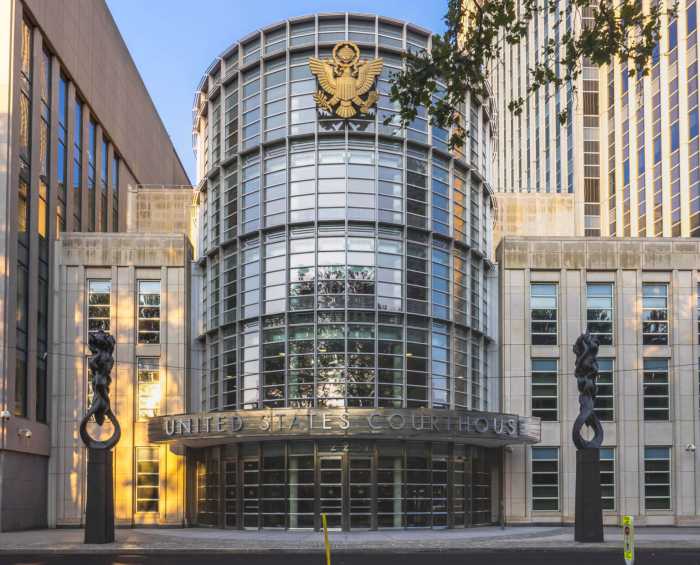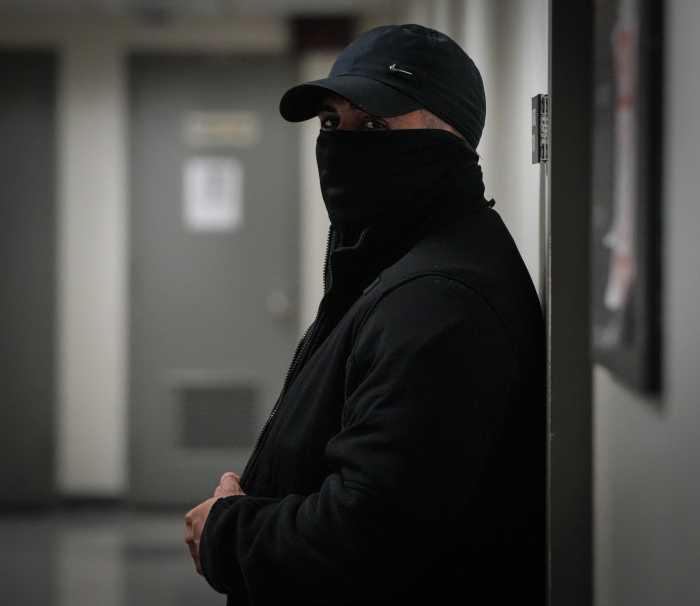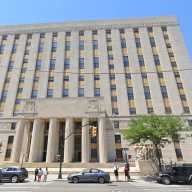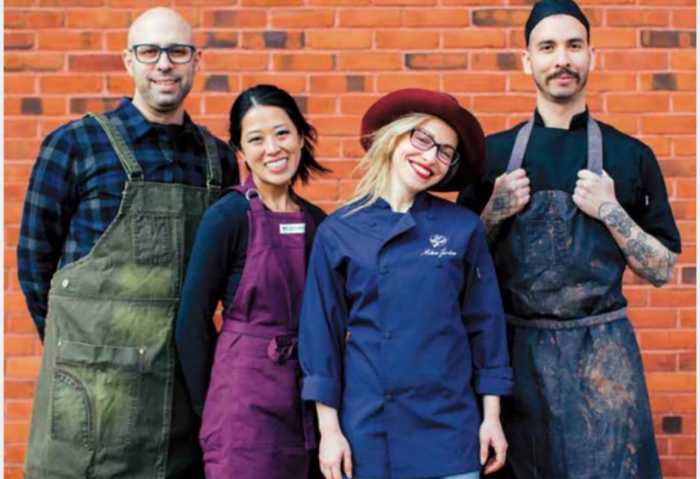When Ali Najmi started practicing election law, he offered his services as a means of survival to a network of hungry, mostly insurgent candidates connected to a citywide Democratic club dedicated to helping progressive Muslims run for local office.
In November’s general election, Najmi, 41, is representing Zohran Mamdani, the young Muslim Queens Assemblymember who jumped to frontrunner status in the November mayor’s race after winning the Democratic primary.
Though he started as an outsider, Najmi has been getting ever-closer to the city’s levers of power over the past decade or so — a classic New York trajectory, he argues.
“The story of politics in this city of New York is that the reformers become the regulars,” Najmi said.
Over the past decade, Najmi has risen to become one of the most prolific election lawyers in New York City, ensuring ballot access to Democrats from a wide variety of ideological stripes — many of whom have different stances on certain big ticket issues. Last year, for instance, he worked for Sam Berger, an orthodox Jewish Queens Democrat who sharply criticized Mamdani’s stance on Gaza.
In the June primary he represented at least 18 candidates — some incumbent council members, others challengers.
But with Mamdani, whose ascent in the primary surpassed almost all political polling, Najmi’s relationship is not just as a hired gun. In addition to his technical services, he has been acting as a trusted mentor and advisor — not a service he offers to anyone else.
“It’s not something I do for any other clients, but Zohran is not just a client,” Najmi said. “Zohran is like my brother.”
Their friendship began over a decade ago when a fresh-faced Mamdani read about Najmi’s ultimately unsuccessful, New York Times-endorsed, city council campaign in the Village Voice and trekked out to Far Eastern Queens to volunteer. Mamdani went on to become a board member of the Muslim Democratic Club of New York City (MDCNY), and the two have stayed close since, with Najmi maintaining similar roles on Mamdani’s two Assembly races.
He recalled the first time he met the early 20-something Mamdani to knock doors with him during his council campaign.
That “thousand-watt smile that what he’s famous for now was even true then,” Najmi said. “And it’s a real part of who he is. I never let go of him after that.”
Mamdani’s path is part of a political project undergirding Najmi’s entire legal career.
“Zohran’s ascension is the culmination of a bunch of people losing, myself included. And you learn lessons, you learn as you go,” Najmi said. “There’s institutional knowledge that was passed.”
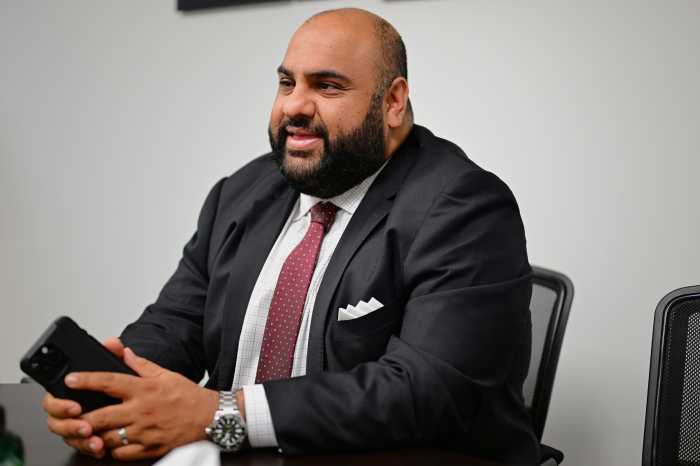
Beyond the scope of his political influence, Najmi has a wonkish dedication to the details of New York’s election system, describing himself as someone who got into election law “for the love of the game.” He was able to do so after graduating from CUNY Law School, where he could pursue public interest law without being burdened by student debt. He’s had to expand his private practice from focusing solely on election law to include criminal defense and civil rights cases in part because politics is seasonal.
“I wish I could do election law all year long,” he said, but his work overseeing the petition gathering to get on the ballot for primary elections happens within the span of two months.
Najmi’s clinical, fluorescently lit office is located in a financial district high-rise on lower Broadway, with just enough space to fit his desk, his assistant and a table for legal conferences. The austere location is several floors above the New York City’s Board of Elections central office, which allowed him to ramp up the volume of candidates he works with in the brief period before the Democratic primary, when most of the city’s contentious political races take place.
“Last week of February up to the first week of April, this office operates as a petition sweatshop,” he said.
For New York attorneys, election season is an all-encompassing thrill ride. Because cases can go from Supreme Court to the Court of Appeal in a matter of weeks, which is very fast in the world of court proceedings, matters of the ballot are extremely time sensitive. By statute, they receive the highest scheduling priority in the court system.
Najmi began his legal career as the legislative director of City Councilmember Mark Weprin, who represented the Long Island-adjacent district that covers Glen Oaks, where Najmi grew up and eventually ran for office.
After co-founding the Muslim Democratic Club in 2013 with Women’s March Co-Founder Linda Sarsour, Najmi took his own shot at Weprin’s council seat after his old boss left office, but lost to the candidate the Queens County Democratic Party endorsed.
His focus on mastering election law is part of a long Queens tradition, Najmi said. He realized that in order for his network of diverse progressive hopefuls to get into office, they would need an attorney who knew the law well enough to compete with the trio of lawyers Michael Reich, Gerard Sweeney and Frank Bolz who have guided the Queens Democratic Party for decades.
“Queens is home to some of the best election attorneys who are not for hire: Sweeney, Reich and Bolz. And growing up in Queens and organizing in Queens,” he said, “it’s a place where you really get an appreciation for election litigation because it has always impacted races and the lawyers I just mentioned are very active and excellent at what they do.”
The antagonism to the political establishment that defined Najmi’s early career has since ebbed. Several of the insurgent candidates from the MDCNY took office, including Mamdani in the Assembly and Shahana Hanif in the city council. Najmi began to represent more incumbents, and to their credit, he said, the lawyers at the helm of the Queens Democratic Party began to work with him on campaigns in the general election against independent or Republican challenges, which he said has been “a pleasure.”
“I started out as the insurgents’ lawyer,” Najmi said. “Then all my clients won. So I don’t know if that makes me the establishment lawyer.”
Najmi’s influence within the Queens’ Democratic Party was on display its recent judicial convention, a process that determines which Supreme Court justices will appear on the Democratic line in November. During the convention Najmi was given the opportunity to formally nominate Judge Soma Syed, who is likely to be the first Muslim Supreme Court judge in Queens.
His longstanding friendship with Mamdani also connects back to his Queens roots. Najmi said he had only been featured in the Village Voice article that captured Mamdani’s interest because his high school friend Himanshu Suri, aka Heems from indie rap group Das Racist, had promoted his candidacy. Suri is another person Mamdani has given credit to as an early inspiration.
“We still talk about it and Zohran’s victory is really an amazing thing for both of us,” Najmi said of Suri, who he bonded with as a teenager over the intersection of art and politics.
But as an advisor to Mamdani, Najmi has played a role leveraging some of his political relationships to set up meetings for the mayoral hopeful to assuage some of his critics, but declined to say what meetings he helped broker.
With Najmi at his side, Mamdani is preparing to potentially make a transition that would launch him from being a party outsider to lead the city — and Najmi’s career path has laid out lessons for the mayoral hopeful.
“Whether you’re the insurgent or the incumbent, the thing that needs to matter most is what are your values,” Najmi said. “I think as long as you can be consistent with what your values are then you can be effective and you can be true to who you are.”



